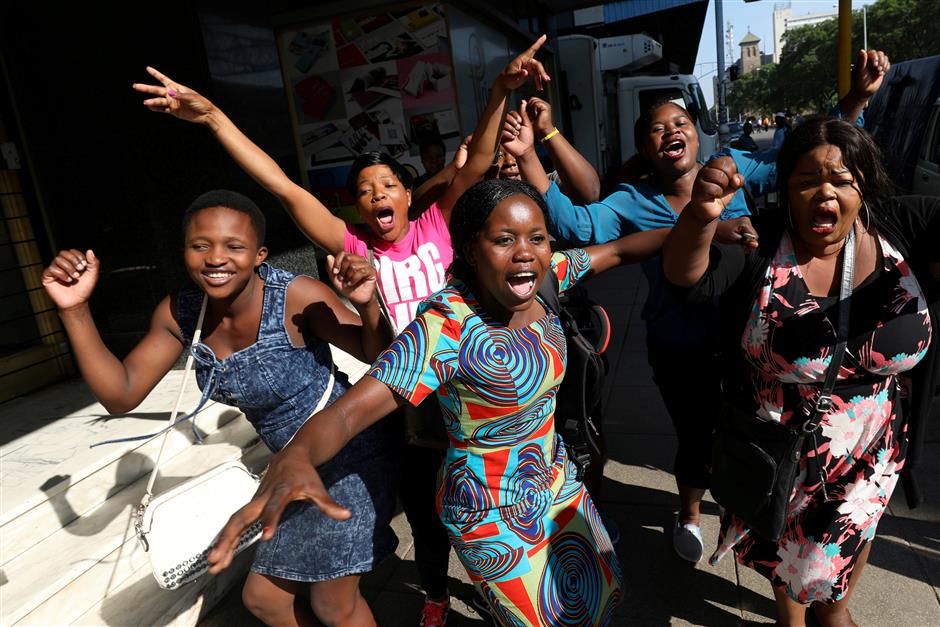Mnangagwa to replace Mugabe as Zimbabwe's leader on Friday

Zimbabweans celebrate in the morning sun after President Robert Mugabe resigned in Harare, Zimbabwe, November 22, 2017.
Emmerson Mnangagwa, Zimbabwe’s former vice president, will be sworn in as president on Friday.
It marks a new era for a country dominated by Robert Mugabe, whose swift downfall this week ended nearly four decades in power.
The ruling ZANU-PF party had nominated Mnangagwa to fill the vacancy left by Mugabe on Tuesday and he would be sworn in on Friday, said Jacob Mudenda, the speaker of parliament.
Mugabe sacked Mnangagwa as vice president two weeks ago to smooth a path for his wife Grace to succeed him. She is much younger than the 93-year-old leader. Mnangagwa fled for his own safety and the military seized control, shattering Mugabe’s authority.
Mugabe held on for a week with ZANU-PF and others urging him to resign. He stepped down finally on Tuesday moments after parliament began an impeachment process. People danced in the streets and some brandished posters of Mnangagwa and army chief General Constantino Chiwenga, who led the takeover.
On Tuesday, Mnangagwa urged Zimbabweans to unite to rebuild the country.
Veteran leaders in other African countries have been ousted by popular uprisings or in elections.
In Zimbabwe, however, the military has ushered Mnangagwa to the threshold of power. For decades he had been a faithful ally of Mugabe. He was put in charge of internal security in the mid-1980s when rights groups say 20,000 civilians were killed.
Reviving country’s economy
Zimbabwe’s next leader faces the task of restoring the country’s fortunes. Alleged human rights abuses and flawed elections prompted many Western countries to impose sanctions in the early 2000s that hurt the economy.
Chinese investment softened the blow but the population of 16 million remains mainly poor and faces currency shortages and high unemployment. Staging a clean election next year will be key to winning fresh investment.
Mnangagwa is almost certain to win that election but it would be a victory for the country’s “old elites” with the aid of China, said Guenther Nooke, German Chancellor Angela Merkel’s representative for Africa.
“He will manage to get elected using fear or many tricks, and then we’ll have a succession from one tyrant to the next,” Nooke said.
China’s foreign ministry said on Wednesday that it respected Mugabe’s decision to resign.
Mugabe leaves a complex legacy. He is among the last of a generation of African leaders who led their countries to independence and then ruled.
But he also presided over a steep decline in Zimbabwe’s economy, won a series of elections after stifling the opposition and he stands accused of persecuting opponents.
The forced takeover of white-owned farms from around 2000 aimed to bolster populist support for Mugabe but crippled foreign exchange earnings from agriculture and led to a period of hyperinflation.
Many Zimbabweans, however, remain hostile to Mnangagwa because of his history of repressing internal dissent.















